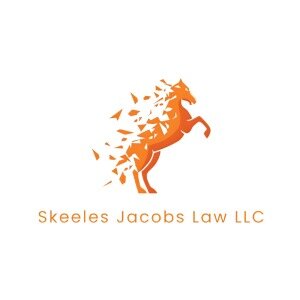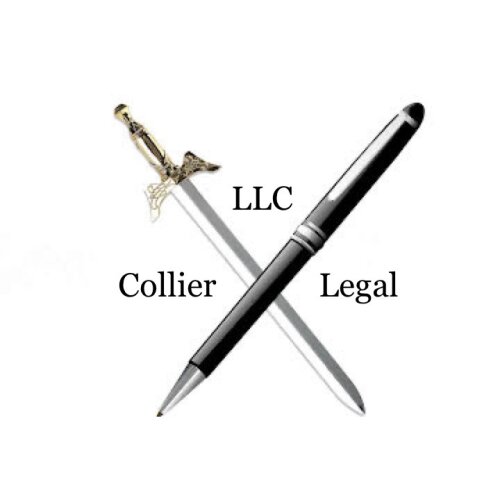Best Corporate & Commercial Lawyers in Ohio
Share your needs with us, get contacted by law firms.
Free. Takes 2 min.
Or refine your search by selecting a city:
List of the best lawyers in Ohio, United States
United States Corporate & Commercial Legal Articles
Browse our 1 legal article about Corporate & Commercial in United States written by expert lawyers.
- United States NY LLC Transparency Act 2026 Compliance Guide
- The federal Corporate Transparency Act (CTA) and New York's LLC Transparency Act are separate regimes: reporting to FinCEN does not satisfy New York's 2026 state filing requirement. Most small corporations and LLCs in the United States must file Beneficial Ownership Information (BOI) with FinCEN starting 2024, unless a specific federal... Read more →
About Corporate & Commercial Law in Ohio, United States
Corporate & Commercial law in Ohio covers the legal framework that governs the formation, operation, and regulation of businesses throughout the state. This practice area includes issues related to starting and managing businesses, drafting and enforcing contracts, addressing disputes, navigating mergers and acquisitions, ensuring regulatory compliance, and handling transactional matters. Whether operating as a small local business, a large corporation, or anything in between, Ohio business entities are regulated by both state and federal laws, making legal guidance crucial for successful and compliant operations.
Why You May Need a Lawyer
Individuals and business owners in Ohio may require legal assistance in Corporate & Commercial matters for several reasons, including:
- Choosing the right type of business entity, such as an LLC, corporation, partnership, or sole proprietorship
- Drafting and reviewing contracts, agreements, and other crucial documents
- Resolving business disputes and handling litigation
- Navigating mergers, acquisitions, and business sales
- Ensuring regulatory compliance with state and federal laws
- Protecting intellectual property
- Managing employment issues and workplace policies
- Addressing shareholder, partnership, or member disputes
- Handling business dissolution or restructuring
- Advising on commercial real estate matters
Legal assistance can prevent costly mistakes, minimize risk, and help ensure long-term success for your business.
Local Laws Overview
Corporate & Commercial law in Ohio is primarily governed by the Ohio Revised Code, specifically Titles 17 (Corporations) and 13 (Commercial Transactions). Some key laws and concepts that affect businesses in Ohio include:
- Business Entities - Ohio recognizes several types of business structures, each with its own formation, operation, and taxation requirements.
- Filing with the Ohio Secretary of State - Most businesses must register and file periodic reports with the Secretary of State's office to remain in good standing.
- Contract Law - Ohio courts enforce valid business contracts and provide remedies in case of breach.
- Commercial Transactions - Article 2 of the Uniform Commercial Code (UCC) as adopted in Ohio governs the sale of goods and commercial paper.
- Employment and Labor - State and federal laws establish requirements for wages, hours, workplace safety, and discrimination.
- Taxation - Businesses are subject to federal, state, and local taxes, including commercial activity tax (CAT), sales tax, and payroll taxes.
- Consumer Protection - The Ohio Attorney General enforces laws to protect consumers from unfair business practices.
Staying informed about the changing legal landscape is essential for businesses in Ohio to maintain compliance and avoid legal pitfalls.
Frequently Asked Questions
What type of business entity should I form in Ohio?
The choice depends on factors such as liability protection, tax considerations, number of owners, and management structure. Common options include LLCs, corporations, partnerships, and sole proprietorships. Consulting with an attorney can help you make the best choice for your circumstances.
Do I have to register my business with the state of Ohio?
Most businesses, except sole proprietorships operating under the owner's personal name, must register with the Ohio Secretary of State. This includes filing appropriate formation documents and maintaining compliance with reporting requirements.
What are common legal issues businesses face in Ohio?
Common issues include breach of contract, employment disputes, shareholder or partnership disagreements, regulatory compliance, intellectual property concerns, and navigating business transactions such as mergers or acquisitions.
What should I include in a business contract?
A well-drafted contract should clearly state the parties involved, specific terms and conditions, payment details, timelines, obligations, dispute resolution procedures, and any termination clauses. Legal review ensures your contract is enforceable and protects your interests.
How can I resolve a business dispute in Ohio?
Disputes can be resolved through negotiation, mediation, arbitration, or court litigation. Many contracts specify the preferred method of dispute resolution. An attorney can advise on the best approach for your situation.
What is the role of the Ohio Secretary of State in business operations?
The Secretary of State oversees business registrations, filings, and annual reports in Ohio. Failing to comply with these requirements can jeopardize your business's legal status.
When do I need a commercial lawyer for my Ohio business?
You may need a lawyer when starting a business, drafting or reviewing contracts, buying or selling a business, navigating regulatory issues, resolving disputes, or facing litigation. Early legal intervention can prevent bigger problems later.
Are there specific laws about selling or merging businesses in Ohio?
Yes, Ohio law sets requirements for mergers, acquisitions, dissolutions, and asset sales. These transactions often involve detailed processes, notifications, and filings. Legal guidance is critical to ensure compliance and a smooth transfer.
Do I need special permits or licenses for my Ohio business?
Depending on your business type and industry, you may need specific state, local, or federal permits or licenses to operate legally. Failing to obtain proper licensing can result in fines or closure.
How do Ohio's commercial laws interact with federal laws?
Businesses must comply with both Ohio laws and relevant federal regulations. This can include tax law, employment law, securities regulations, and more. An attorney can help you navigate the interplay between state and federal requirements.
Additional Resources
If you need more information or assistance, the following resources can be helpful:
- Ohio Secretary of State - Handles business registration and reporting requirements
- Ohio Attorney General - Consumer protection and business complaint resolution
- Ohio Department of Taxation - Business tax administration and resources
- Ohio Chamber of Commerce - Business resources, advocacy, and legal updates
- Small Business Administration (Ohio District Office) - Support for small business owners
- Local legal aid organizations - Some provide business law support for qualifying entrepreneurs
- County and city business licensing offices
Next Steps
If you require assistance with a Corporate & Commercial matter in Ohio, consider taking the following steps:
- Identify the specific legal issue or question you need help with.
- Gather all relevant documents, such as contracts, formation papers, and correspondence.
- Contact a qualified Ohio attorney experienced in Corporate & Commercial law. Initial consultations often help clarify your situation and outline your options.
- Make use of available resources, such as governmental offices or business organizations, which may offer guidance or referrals.
- Stay proactive by regularly reviewing your business's compliance with state and federal regulations.
Early legal advice can protect your interests, streamline your business processes, and minimize risk. If you are unsure where to start, reaching out for a consultation with a legal professional is a smart first step.
Lawzana helps you find the best lawyers and law firms in Ohio through a curated and pre-screened list of qualified legal professionals. Our platform offers rankings and detailed profiles of attorneys and law firms, allowing you to compare based on practice areas, including Corporate & Commercial, experience, and client feedback.
Each profile includes a description of the firm's areas of practice, client reviews, team members and partners, year of establishment, spoken languages, office locations, contact information, social media presence, and any published articles or resources. Most firms on our platform speak English and are experienced in both local and international legal matters.
Get a quote from top-rated law firms in Ohio, United States — quickly, securely, and without unnecessary hassle.
Disclaimer:
The information provided on this page is for general informational purposes only and does not constitute legal advice. While we strive to ensure the accuracy and relevance of the content, legal information may change over time, and interpretations of the law can vary. You should always consult with a qualified legal professional for advice specific to your situation.
We disclaim all liability for actions taken or not taken based on the content of this page. If you believe any information is incorrect or outdated, please contact us, and we will review and update it where appropriate.
Browse corporate & commercial law firms by service in Ohio, United States
Ohio, United States Attorneys in related practice areas.
Browse corporate & commercial law firms by city in Ohio
Refine your search by selecting a city.











